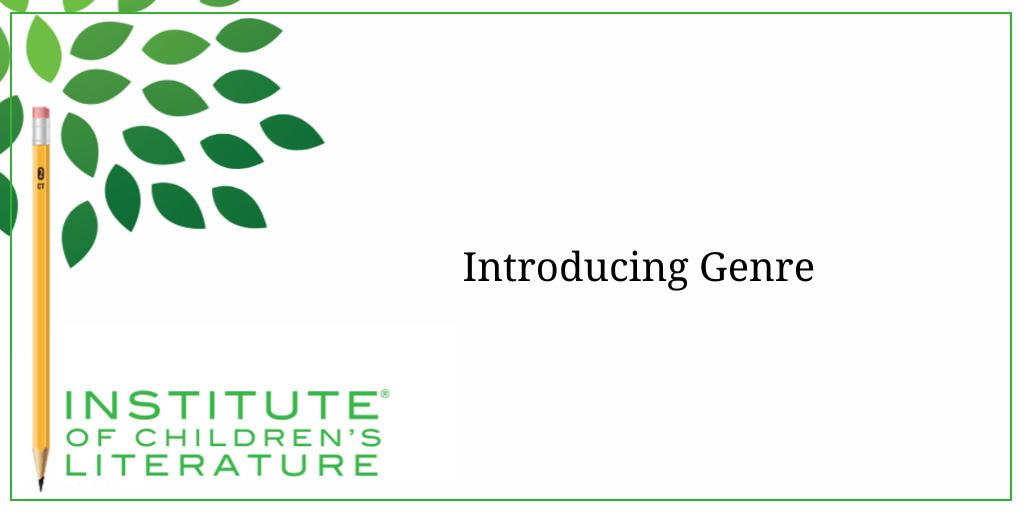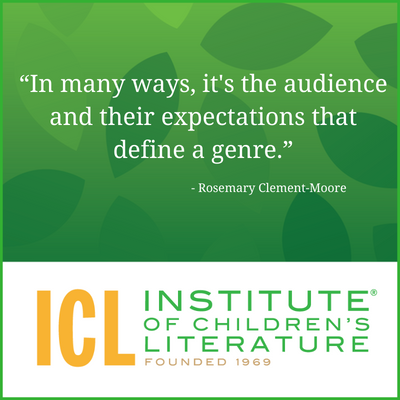
5 Ways Writers Can Prep for 2025 Goal Setting
Before we roll on to the new writing year, let’s harness our optimism for the blank slate before us and prepare for our 2025 Goal Setting just for writers.

genre: a category of artistic composition such as literature, characterized by similarities in form, style, or subject matter.
The beginnings of the concept of literary genre lie in ancient Greece, where plays and poetry had rigid rules that applied based on the specific themes explored in the play or poem. When prose began to develop as a literary form, more genre writing grew from it. One of the first divisions in prose literature was between fiction and nonfiction. Now both fiction and nonfiction have a great many subdivisions or genres based on common elements and approaches in each genre. For readers, genre is a way of anticipating certain things about the content of a book. This makes genre categories helpful for publicists and booksellers who are interested in matching books to the readers most likely to be interested.

Genres can also mix together. Historical novels can have romance or can have supernatural elements. Adventure stories with superheroes obviously will include speculative fiction elements. And the common genre “rules” found in comedy: a light touch, snappy dialogue, humor, and happy endings slip into many stories that also clearly fit into other genres. In other words, genre writing can be messy. This is because genre today isn’t about “rules” the way it was in Ancient Greece. Instead, it is a shorthand way of saying certain things about a book and managing expectations.
In writing books and stories for children and teens, some genres are considerably more common than others. Though all fiction requires creativity and imagination from the writer, not all stories are simply made-up inventions of the writer. Many require considerable research, and some genres demand it. For instance, historical fiction for young people is judged harshly if the “history” isn’t perfectly correct so writers research deeply and stray from historical accuracy at their own risk. Folktales are another genre that mixes research (study of different versions of the original tale) and creativity (as the writer spins their own version of the tale with some kind of unique focus to make their version special). Like historical, writers can receive criticism if a folktale wanders too far from the “real” story, the one with the deepest historical roots.
Popular genre writing for teens include coming-of-age (in fact, most editors would argue that all teen novels are coming-of-age, even when they mix in elements of other genres.) A coming-of-age novel looks at characters that change and mature in some way as they make the transition into adulthood. Another element that is almost ubiquitous in teen novels is romance, even when the novel is also a fantasy story or a science fiction story, or an adventure story. For YA novels, both coming-of-age and romance often come along for the ride even when the bulk of the novel’s elements fit another genre.
 Comedy Transcends Genre Writing
Comedy Transcends Genre WritingMany books for young people of all ages will use elements from the comedy genre to lighten the story, making the books appealing, faster reads, and less emotionally heavy. But not all novels for young people are light fare. Teen novels especially can explore some extremely dark places and definitely do not always have a happy ending, even if most offer some hope, some sense that there is a road to something better (even if not to something that eliminates all the problems). But because humor is such a common element, it can often appear even in books that are more easily sorted into other genre categories. So, a story might be the humorous adventures of squirrels who accidentally find themselves aboard a rocket on the way to the space station. The resulting Squirrels in Space could cross a number of genres as it tells the funny, adventurous tale.
Because genre is not intended to be a list of rules, it is more of a help to a writer than a hindrance. If publicists can easily say your teen novel is a “light, romantic romp” or your middle-grade novel is “an amusing take on classic horror” then they can help booksellers know how to talk about the book and how to shelve it. Both increase the chance that your book will reach a broad audience. And if you can describe your story with genre shorthand, it will help you attract the attention of an agent or a publisher. So, genre is worth thinking about as you write and we’ll continue to look at genre throughout the month.
With over 100 books in publication, Jan Fields writes both chapter books for children and mystery novels for adults. She’s also known for a variety of experiences teaching writing, from one session SCBWI events to lengthier Highlights Foundation workshops to these blog posts for the Institute of Children’s Literature. As a former ICL instructor, Jan enjoys equipping writers for success in whatever way she can.

Before we roll on to the new writing year, let’s harness our optimism for the blank slate before us and prepare for our 2025 Goal Setting just for writers.

Writers can be thin-skinned when it comes to getting feedback on their work. Let’s look at 4 ways to positively deal with constructive criticism!

Rejection is part of the territory when it comes to being a writer. Today we offer reflection for writers to help redirect your efforts after a rejection.
1000 N. West Street #1200, Wilmington, DE 19801
© 2024 Direct Learning Systems, Inc. All rights reserved.
1000 N. West Street #1200, Wilmington, DE 19801
© 2024 Direct Learning Systems, Inc. All rights reserved.
1000 N. West Street #1200, Wilmington, DE 19801
© 2024 Direct Learning Systems, Inc. All rights reserved.
1000 N. West Street #1200, Wilmington, DE 19801
© 2024 Direct Learning Systems, Inc. All rights reserved.

1000 N. West Street #1200, Wilmington, DE 19801
© 2025 Direct Learning Systems, Inc. All rights reserved.

1000 N. West Street #1200, Wilmington, DE 19801
©2025 Direct Learning Systems, Inc. All rights reserved. Privacy Policy.
2 Comments